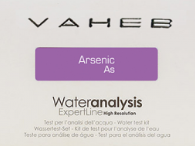Water and Sewage Test Kit

1-Chlorine testing kits: measure the concentration of chlorine, which is often used as a disinfectant in wastewater treatment.
2-Ammonia testing kits: quantify the level of ammonia, which can indicate the presence of organic matter and the effectiveness of biological treatment processes.
3-Sulfite testing kits: assess the amount of sulfite, which may be used in de-chlorination or odor control processes.
4-Hydroxide testing kits: measure the concentration of hydroxide ions, which can affect pH levels and alkalinity in wastewater.
These kits are essential for monitoring and maintaining water quality standards, optimizing treatment processes, and ensuring regulatory compliance in wastewater treatment facilities.

1-pH testing kits: These measure the acidity or alkalinity of the wastewater, which is crucial for ensuring optimal conditions for biological treatment processes and minimizing corrosion in infrastructure.
2-Phosphate (PO4) testing kits: Phosphate levels are tested as phosphorus is a nutrient that can lead to eutrophication if present in excess. Monitoring phosphate levels helps in controlling nutrient pollution and preventing adverse environmental impacts.
3-Silica (SiO2) testing kits: Silica levels are measured as silica can contribute to scaling and fouling in wastewater treatment equipment. Monitoring silica levels helps in controlling these issues and maintaining the efficiency of treatment processes.
4-Nitrate (NO3) testing kits: Nitrate levels are assessed as high concentrations of nitrate can indicate contamination from sources such as agricultural runoff or improperly treated wastewater. Monitoring nitrate levels is essential for protecting water quality and public health.
These testing kits enable wastewater treatment facilities to monitor these critical parameters, optimize treatment processes, and ensure compliance with regulatory standards.

















